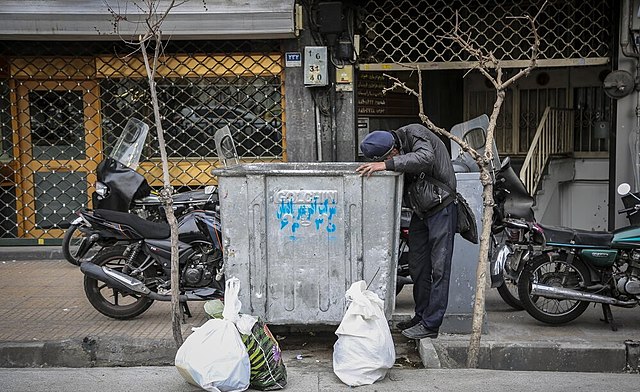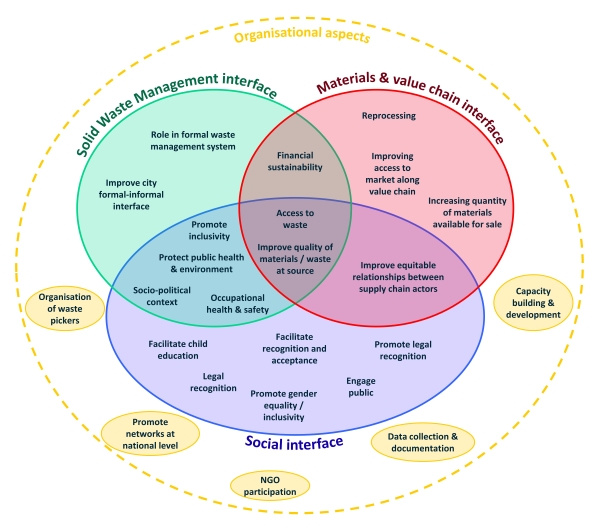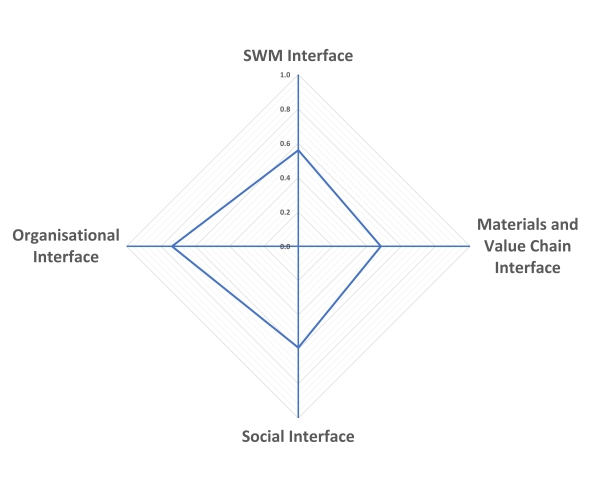InteRa
Worldwide, between 10 and 20 million informal workers ('waste pickers') are engaged in collecting materials for recycling, shoring up more than half of global circular economic activities, contributing to wider economic prosperity, and fighting plastic pollution. Yet this large group of entrepreneurs are often stigmatised and even criminalised for their efforts, living on the margins of society and facing daily persecution. Evidence has shown that they experience multi-morbidity throughout their lives which are, on average, substantially shorter than other people.

Actions to formalise the informal recycling sector have often proved futile, resulting in a backlash from its participants who, in many cases, value their vocational independence and autarky. Yet the unsafe working conditions, frequent illness, and injury experienced by waste pickers are challenging to reconcile with contemporary ethical approaches to working conditions.
Dr Costas Velis who lead the creation of the methodology said:
"Formal recognition of waste pickers and their integration into solid waste management planning is seen as the most effective way to retain the rights of participants and foster greater social protection"
As part of a UN Convention on the Just Transition of the workforce, parties have agreed common concepts for the creation of decent work and quality jobs.
The Integration Radar (InteRa) was Created by Dr Costas Velis and colleagues to enable assessment of the level of inclusivity of the informal recycling sector via a systematic framework. In addition to the assessment, InteRa incorporates a suite of interventions which can be implemented to promote integration, social acceptance and environmental health. Local conditions are assessed via four intersecting aspects of informal waste sector participants' societal and material system interface. 
InteRa is a toolkit which enables practitioners to assess the status of waste picker inclusion at municipal level so that scarce resources can be targeted towards improvement of livelihoods. A spreadsheet template for conducting an assessment is available for download below.
Integration Radar (InteRa) Spreadsheet for Practitioners
Practitioners are able to score system attributes according to four interfaces which results in the generation of a radar diagram as illustrated below. This enables straightforward and consistent comparison across cities and identification of aspects for improvement and monitoring.

We welcome correspondence form anyone who requires assistance with the toolkit PlasticPolution@leeds.ac.uk
